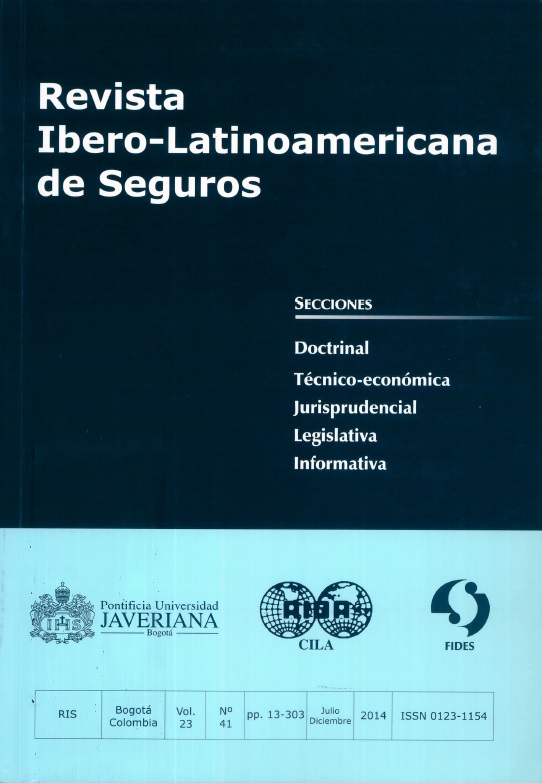Abstract
El debate alrededor de si las pruebas genéticas y sus resultados tienen que ser declarados por el tomador de un seguro al asegurador ha sido extenso. Este estudio analiza los diferentes argumentos que existen a favor y en contra y concluye que no existen motivos suficientes para que se otorgue un trato diferente a estos hechos o circunstancias y que por lo tanto deben ser declarados y pueden ser tenidos en cuenta por el asegurador en el proceso de suscripción.Así mismo se revisa si el marco jurídico colombiano se ajusta a esta conclusión con el fin de verificar si existen normas especiales que regulen las pruebas genéticas que conlleven a que el tomador no tenga que informar estas circunstancias de acuerdo con el régimen general del deber de declarar el estado del riesgo establecido en el artículo 1058 del Código de Comercio.No solamente se analiza si el tomador tiene que declarar esta información de acuerdo con los parámetros señalados, sino también si el asegurador puede y debe tener en cuenta la misma para determinar si asume o no el riesgo y las condiciones en que lo haría si decide asumirlo.This journal is registered under a Creative Commons Attribution 4.0 International Public License. Thus, this work may be reproduced, distributed, and publicly shared in digital format, as long as the names of the authors and Pontificia Universidad Javeriana are acknowledged. Others are allowed to quote, adapt, transform, auto-archive, republish, and create based on this material, for any purpose (even commercial ones), provided the authorship is duly acknowledged, a link to the original work is provided, and it is specified if changes have been made. Pontificia Universidad Javeriana does not hold the rights of published works and the authors are solely responsible for the contents of their works; they keep the moral, intellectual, privacy, and publicity rights.
Approving the intervention of the work (review, copy-editing, translation, layout) and the following outreach, are granted through an use license and not through an assignment of rights. This means the journal and Pontificia Universidad Javeriana cannot be held responsible for any ethical malpractice by the authors. As a consequence of the protection granted by the use license, the journal is not required to publish recantations or modify information already published, unless the errata stems from the editorial management process. Publishing contents in this journal does not generate royalties for contributors.


